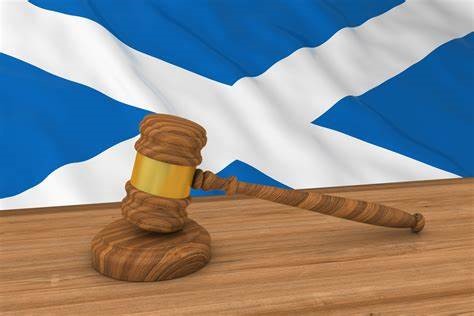On 16th January 2023 the UK Parliament which sits in Westminster (‘the Westminster Parliament‘) for the first time exercised powers under the Scotland Act 1998 as amended by the Scotland Act 2012 and the Scotland Act 2016 (‘the Scotland Act’) Section 35 (‘the Section’) to overrule a decision made in the Scottish Parliament which sits in Holyrood (‘the Holyrood Parliament’).
The legislation in question was the Gender Recognition Reform (Scotland) Bill (‘GRR Bill’) which was passed by the Holyrood Parliament last month. The GRR Bill would allow trans people in Scotland to obtain a Gender Recognition Certificate, legally changing their gender without the need for a gender dysphoria diagnosis. The system around diagnosis has attracted criticism for often requiring trans people to spend many years on wait lists to see appropriate specialists. Having the law correctly reflect gender is important to many in the LGBTQ+ community and beyond because legal recognition is a gateway to certain rights, such as: serving in a prison appropriate to your gender, or access domestic abuse support which is specifically gendered.
The Westminster Parliament has argued that the Section was drafted specifically with the purpose of challenging overreaches by the Holyrood Parliament into reserved matters. In this case the Westminster Parliament argues that the GRR Bill would clash with the Equality Act 2010 (’the Equality Act’), a matter reserved to the Westminster Parliament under section L2, Schedule 5 of the Scotland Act.
The Section allows the Westminster Parliament to stop the GRR Bill from being submitted for approval by the monarch in a process required for every piece of legislation to be passed into law called Royal Assent.
It is important to note that exercise of the Section was not the only option available to the Westminster Parliament and that they were entitled to pass comment and propose amendments throughout the lengthy debate of the bill. In this instance, this has not been used.
Whilst it is inarguable that the legislative de jure power to prevent legislation passed by the Holyrood Parliament receiving Royal Assent exists, constitutional scholars will be quick to observe that the Westminster Parliament has never exercised their power under the Section before. This would seem to have created what is called a Constitutional Convention against interference by the Westminster Parliament into matters decided with reasonable consideration by the Holyrood Parliament.
Constitutional conventions may seem of little practical importance to the day-to-day of most citizens, however it is vital that they are observed, particularly in the arena of Royal Assent where convention does a great deal of the heavy lifting in maintaining a balance of power between the respective branches of state. Marshall suggested that a Constitutional Convention can be identified as ‘…the rules that the political actors ought to feel obligated by, if they have considered the precedents and reasons correctly’.
Whilst the constitutional ramifications from a legal perspective have yet to be fully considered, interference on such an important issue to the LGBTQ+ community is likely to inspire further calls for a reconsideration of the Scotland Act if not Scottish Independence itself.
For further information on this topic or on any other legal area, please contact John Szepietowski or Kay Stewart at Audley Chaucer Solicitors on 01372 303444 or email admin@audleychaucer.com or visit our Linkedin page.
This information was correct as at February 2023
